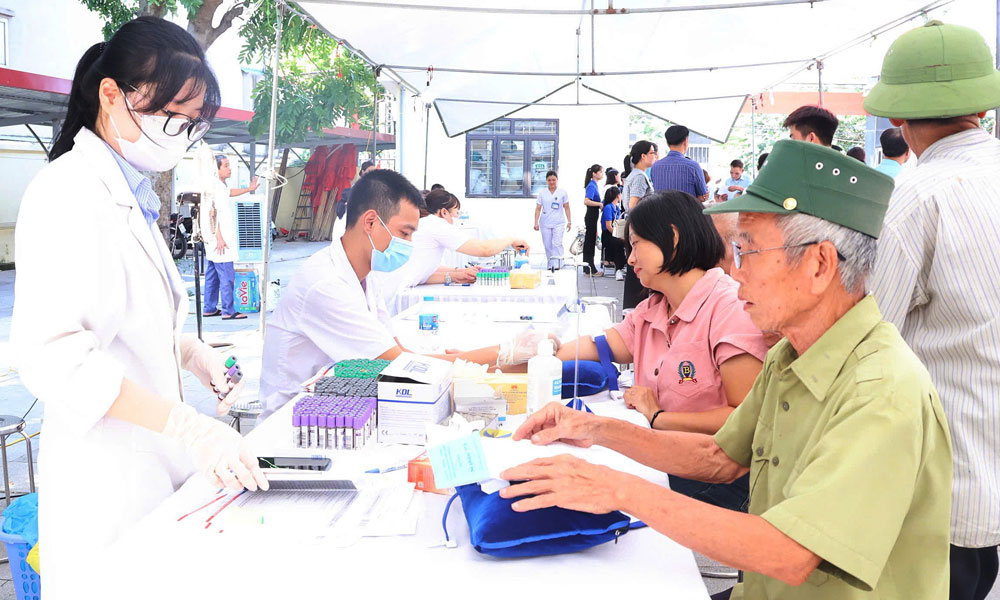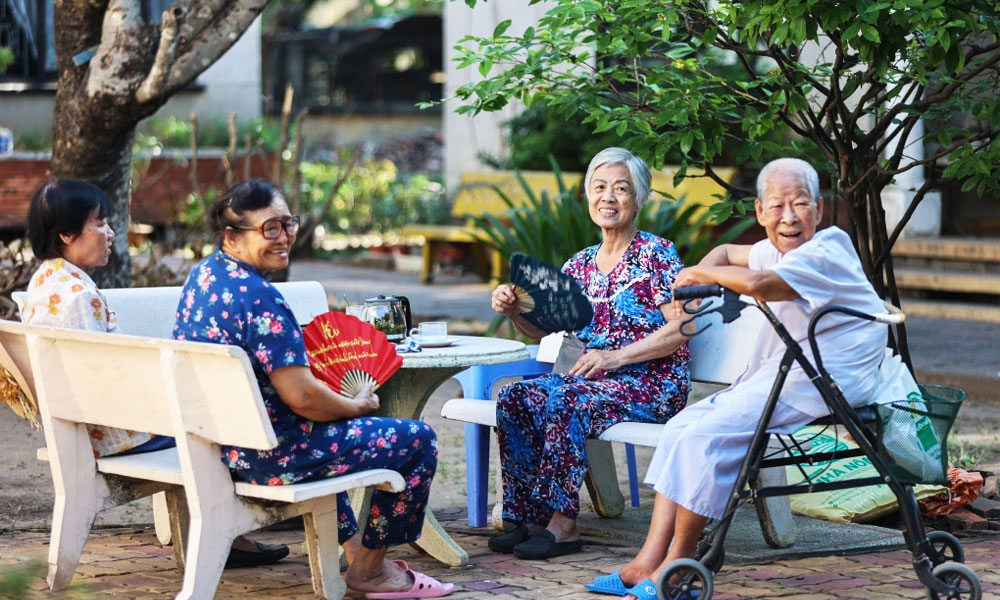Vietnam's top leader says elder day-care must become social welfare pillar
Party General Secretary To Lam has called for elder day-care centers, where seniors spend the day socializing, exercising and receiving support before returning home, to become a pillar of Vietnam's social welfare system.
At a Party Central Committee conference on Sept. 16, To Lam stressed the need to address loneliness among older people.
 |
|
Elderly people at the Thi Nghe nursing home in Ho Chi Minh City, Vietnam, February 2024. |
"Daytime elder-care centers are the right direction, but progress has been slow despite repeated mention," he said. "In the mornings when children and grandchildren go to school and work, the elderly are left home alone and very lonely."
He suggested that such centers could offer shuttle services and a place for seniors to meet friends and former colleagues, join physical activities, and enjoy music and cultural programs.
"This is a very good model. The issue is that the Ministry of Health, the Ministry of Home Affairs, and the Elderly Association must coordinate and assign responsibilities to actively implement it. Child care is important, but the elderly also need attention, because these solutions extend life expectancy and improve quality of life," he emphasized.
Experts say the demand is urgent.
Truong Xuan Cu, vice chairman of the Vietnam Association of the Elderly, noted that Vietnam currently has just over 300 elder-care centers serving about 11,000 people, while the country already has more than 14.2 million citizens aged 60 and above. That number is expected to reach nearly 18 million by 2030.
Day-care centers cost less than full residential facilities and attract more seniors, especially those who are still mobile, Cu said.
"Meeting peers of the same age and mindset helps rejuvenate emotions, makes them feel warmer and helps them appreciate life more," he added.
Ta Van Ha, deputy chairman of the National Assembly’s Committee for Culture and Society, warned that rapid social changes are leaving many elderly without support.
"The elderly are facing a lack of caregivers, loneliness, and even abuse. When they have no place to socialize and cannot care for themselves, they easily fall into depression," he said.
The World Health Organization has identified loneliness as a global public-health problem, with one in six people worldwide affected. Among older people, the ratio is one in three. A national survey in Vietnam also found that women, the very old, and those living alone are most at risk.
Professor Giang Thanh Long of the National Economics University said the expansion of elder day-care centers aligns with Vietnam's "3A" health-care goals: accessibility through grassroots clinics, affordability via health insurance, and adequate services.
"Early elder care reduces mental and emotional shocks, and in the long run saves costs for society," he said.
Other experts stress that local governments must take responsibility. Ha proposed converting surplus ward and commune buildings into elder-care facilities, while Long said the state should issue clear policies on land, taxation, and service standards to encourage private investment.
The model is not new globally. In the U.K., "day centers" provide light exercise, meals and social activities. In the U.S., "adult day care" also serves people recovering from illness or injury, with staff offering health monitoring and even home pick-up. Singapore has pioneered "senior activity centers," while the Netherlands is known for Hogeweyk, a "dementia village" where residents live more freely in a familiar environment.
 Bắc Ninh
Bắc Ninh












Reader's comments (0)